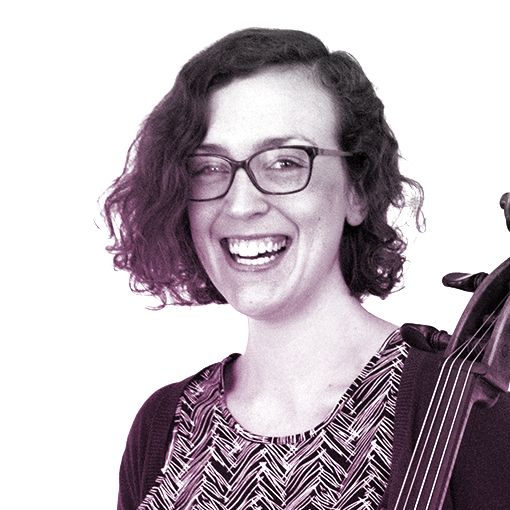Biography
Swedish cellist Rebecka Lagman began playing the cello at the age of six. Rebecka completed her Bachelor of Music in Performance at the Malmö Academy of Music in 2011, where she studied with John Ehde and Mats Rondin, and completed her master’s degree with distinction in 2013. In-between, Rebecka spent a year studying as an exchange student at the Conservatoire of Paris with Agnes Vesterman and in 2016, completed a Musical Interpretation Course at the Malmö Academy of Music, studying with Torleif Thedéen.
Rebecka has frequently participated in masterclasses and courses around Europe, including the Martin Wegelius Institute Summer Course in Finland, the Bryanston Easter Residential Course in the UK and Académie-Festival des Arcs in France, with teachers including Andreas Brantelid, Xavier Gagnepain and the members of the Vertavo Quartet.
Since graduating, Rebecka has been freelancing around Scandinavia in orchestras such as the Norrköping Symphony Orchestra, Malmö Opera, Helsingborg Symphony Orchestra and Stavanger Symphony Orchestra. She was awarded a scholarship from the Vadstena Academy in the summer of 2015, performing the contemporary opera Son of Heaven by the Japanese composer Moto Osada. Whilst studying in Paris, Rebecka performed Karlheinz Stockhausen’s Michaels Reise um die Erde with Ensemble Le Balcon, with no less a person than Pierre Boulez in the audience.
A keen chamber musician, Rebecka was a founding member of the Tilia Quartet, a string quartet which mainly focuses on playing more or less forgotten music by Swedish composers, in collaboration with The Royal Swedish Academy of Music and their project Swedish Musical Heritage. Their most recent project included string quartets by female composers Valborg Aulin and Amanda Maier-Röntgen. In 2016, the Tilia Quartet was awarded a major scholarship for their work of bringing forgotten Swedish music back to life, and they are now planning a tour around Sweden and abroad.
QUICKFIRE QUESTIONS
What’s on your playlist right now?
Always something classical: Brahms String Quintet No. 2, Tchaikovsky String Sextet ‘Souvenir de Florence’ and Sibelius Symphony No.5, always some good old ’70s progressive rock: Emerson, Lake & Palmer’s debut, King Crimson Starless and Bible Black, and always something jazzy and funky: Esperanza Spalding Chamber Music Society and Vulfpeck The Beautiful Game.
What do you think concerts of the future should look like?
I believe in literally bringing the music closer to the audience. A good example of this is The Chamber Music Club Krinolin, which a couple of friends of mine founded some years ago back in Malmö. They arrange concerts once a month in a bar, where the audience can listen to music performed by high class artists like Håkan Hardenberger and the Danish String Quartet and at the same time enjoy some good food and a beer. I think this format is brilliant, as it makes the whole concert situation much more relaxed, both for the players and for the listeners.
Tell us something about yourself that might surprise us
I am a certified group fitness instructor, teaching Les Mills BodyStep. As brisk as it gets!
